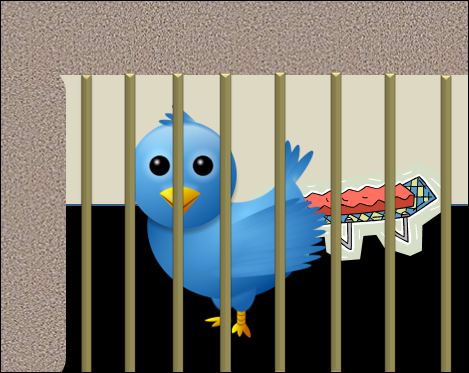By Kerry Gorgone, {grow} Contributing Columnist
Can an innocent re-tweet get you into legal trouble? Absolutely, as thousands of Twitter users recently discovered.
Defamation laws in the U.K. are stricter than in the United States (although reform is currently underway) and Lord Alistair McAlpine intends to wield those laws against 10,000+ people who spread a false BBC story alleging that an unidentified Tory was a child molester. Twitter users quickly began speculating that McAlpine was the subject of the piece, and he’s begun threatening those who shared the story with a libel lawsuit.
One click to retweet the story could cost a defendant tens of thousands of dollars, depending on the size of his or her audience. Apparently, counsel for McAlpine is using a tiered system, requiring small settlements and apologies from Twitter users with small follower bases, but increasing the demand from those with large followings.
How did this happen? It’s not as though those Twitter users who re-shared the story wrote it.
Twitter and defamation
Defamation works this way: you publish statements that tend to damage someone else’s reputation. “Publish” might mean you write and post the story, but it could also mean that you repeat it. Gossiping at the bar would be slander (spoken defamation). Retweeting could constitute written defamation, or libel.
In the United States, it’s less likely that Twitter users would be found liable for sharing the story at issue here, because public figures (like Lord McAlpine, a politician) have a higher burden of proof in defamation cases under U.S. law.
Specifically, a public figure seeking to recover damages for defamation must prove “actual malice,” meaning that the defendant knew the story was untrue, or published it “in reckless disregard” as to whether it was true. In other words, you had reason to think it wasn’t true, but published it anyway.
Most people under this standard could be off the hook in the McAlpine scenario, as a reputable news source like the BBC would seem to be trustworthy, e.g. they would not be sharing the story “in reckless disregard” as to its truth, because they would likely assume it had been vetted by the major media company before publishing.
Will the law chill free speech?
In the case of private citizens, recovery for defamation becomes easier, although bringing suit opens a proverbial can of worms: the plaintiff would subject himself to discovery (the process where the defense can search for evidence to prove the truth of the allegedly defamatory statements). Anyone would balk at the level of exposure inherent in the litigation process.
In the U.K., however, the burden is on the defendant (the retweeter) to prove the truth of the statement. This is costly, not to mention a virtual impossibility in most cases, as retweeters generally have no actual relationship with the subject of their statements.
Libel lawsuits both abroad and in the U.S. have chilled online speech among those who’d prefer to avoid court costs (everyone!).
Here’s a tip to provide an ounce of prevention: Type “allegedly” in front of the potentially defamatory statement. It takes two seconds, and it could spare you legal headaches, not to mention save you thousands of dollars. Allegedly.
 Kerry O’Shea Gorgone, JD/MBA, teaches New Media Marketing in the Internet Marketing Master of Science Program at Full Sail University in Winter Park Florida. Follow her on Twitter: @KerryGorgone
Kerry O’Shea Gorgone, JD/MBA, teaches New Media Marketing in the Internet Marketing Master of Science Program at Full Sail University in Winter Park Florida. Follow her on Twitter: @KerryGorgone



